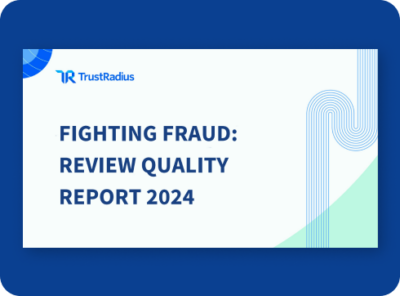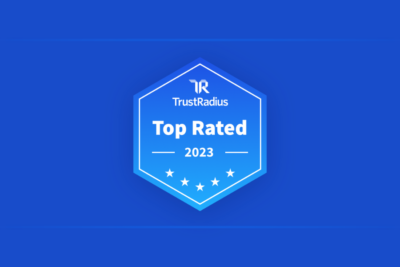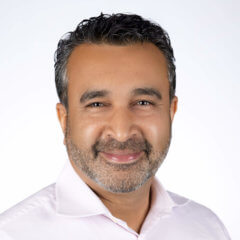
The Rise of the Customer-Powered CEO
The SaaS Report recently published their 2018 Top 50 SaaS CEO list. The CEOs were selected based on feedback from employees and industry colleagues, and assessed across areas including integrity, intelligence, energy, company culture, and company growth.
As I perused the list, I recognized many leaders that exhibit a key trait I pay close attention to — customer-centricity, defined by an acute focus on driving value for their customers. These CEOs:
- Fearlessly embrace customer feedback. These CEOs elevate the voice of the customer above the voice of their marketing, the voice of industry pundits, even the voice of their Board of Directors. It is their true north. Critical customer feedback becomes a vital data point in steering the company, rather than a critique to be rebutted.
- Build systematic processes to capture reviews, extract insights, and take action. Customer feedback isn’t simply captured and archived. These CEOs make it a strategic priority to capture reviews throughout the customer lifecycle, maintaining a constant stream of detailed customer content. They then mine it for insights and build processes to inject those insights into every function. That drives continuous improvement across the company, from influencing prospects in marketing to driving product roadmap to improving billing processes.
- Turn feedback into an ongoing dialog. These CEOs focus on letting customers know they’ve been heard at the highest level. They turn every feedback point into an authentic conversation because they know it will build engagement, loyalty, and referrals. And through advocacy programs, that feedback drives additional conversations between the customers, the company, and the market.
I reached out to a few of these CEOs to ask them what it means to them to be customer-centric. Here are some of the highlights from those conversations.
Vineet Jain, CEO & Founder, Egnyte
Egnyte is a business-focused company that delivers content collaboration and management to its customers. For some time, I’ve seen Vineet post about their customer successes on LinkedIn, so I was keen to understand his broader philosophy.
He recounted that early on he made the decision that every customer — no matter how large or small — needs a customer success manager. Of course ratios vary by customer economics, but the point is that “every customer should have a point of contact and regular engagement.” He also explained his religion about conducting quarterly business reviews (QBRs) with customers. “A full quarter of our roadmap is committed towards addressing feedback from QBRs.”
Vineet shared a story about visiting a customer in the UK who gave him some critical feedback. He was pained that his product was causing the customer extra work. After addressing the issue, he made a special point of communicating personally with the customer about the fix. You might think that kind of customer focus only happens at smaller company, but with 500 employees and approaching $100M in revenue, Vineet is still very much wired that way.
Vineet also understands that focusing on customers drives revenue. Egnyte has a very strong net retention rate, but they’ve also developed an effective approach to use customer advocacy for new customer acquisition. They host “dine and dialogue” meetings around the country where five to six customers and five to six prospects share pain points, compare notes, and discuss potential solutions. The dinners are hosted by a regional account executives and customer success managers, and have been a strong contributor to pipeline — clear evidence that being customer-powered drives growth.
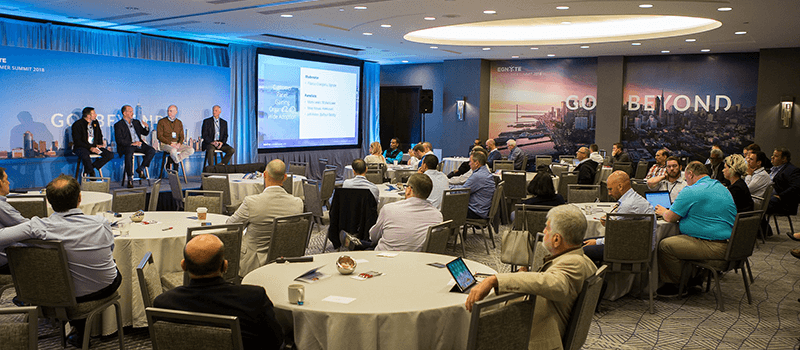
Tracy Young, CEO & Co-Founder, PlanGrid
As a freshly minted construction engineer, Tracy was surprised by how inefficient the construction industry was, and in particular how painful paper-based blueprints were to use on the jobsite. That inspired her to start PlanGrid, and to this day she has a unique empathy for her customers.
“One of PlanGrid’s core values is to go above and beyond for every customer,” she said. “What’s the point of building software if not for the people who use it? For us, we believe it is a privilege to build tools for some of the hardest working builders in the world. If we can save a construction superintendent 10 minutes, that’s 10 minutes they’re leaving the jobsite earlier to spend with their family and friends. To us, customer-centricity means keeping the builders and industry in mind for every decision we make.”
When she went through Y Combinator, Tracy was inspired by the founder of Wufoo who took support to extreme levels. In an 2014 interview Tracy shared, “We are really serious about support. There’s a chatbox on our website that we man 12 hours a day [which has since increased to almost 24 hours a day], five days a week. Our support ticket response time is just a few hours. Everyone at PlanGrid does support and talks to users, including the founders.”
While support is now owned by a dedicated team, and the company has since grown to almost 400 employees, PlanGrid’s customer-centric focus hasn’t lessened. In fact its customer service and support team consistently wins awards.
Tracy and the PlanGrid team have also embraced customer reviews, with over 100 ratings and reviews on TrustRadius. The company has even started to infuse customer reviews into their digital strategy, dynamically syndicating them to landing pages to improve conversion.
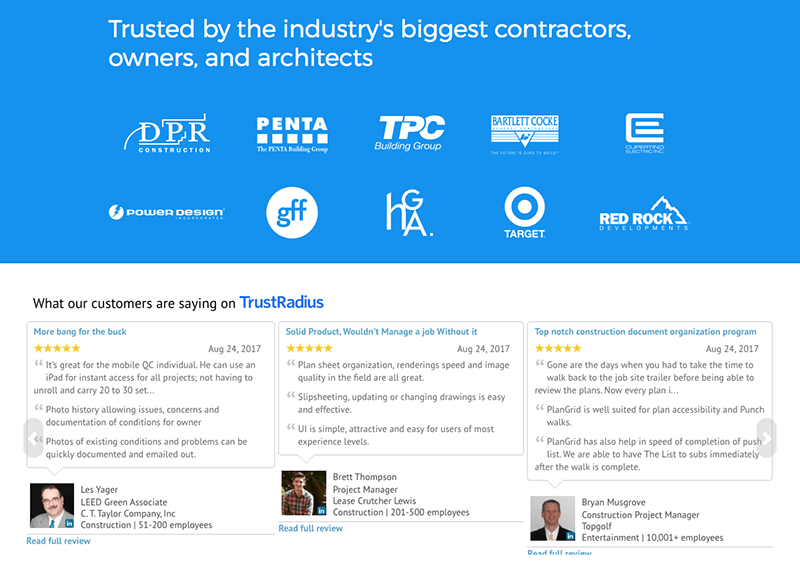
Nick Mehta, CEO, Gainsight
You would expect the leader of a customer success software company to embrace customer-centricity, but Nick Mehta truly takes customer-focus the extra mile. Over the last two years, Gainsight has had almost 300 customers rate and review them on TrustRadius, and their marketing communications frequently feature quotes from their reviews.
What makes Nick particularly unique is his willingness to listen to and engage with customers. That even includes commenting on their reviews. As the CEO of a 500 person company, that’s pretty exceptional.
When I asked what customer-centricity means to him, Nick responded: “Historically, the idea that a company could be ‘customer-centric’ was more philosophy than strategy. Today, best of breed businesses are orchestrating customer intelligence throughout the company in order to drive client experience end-to-end, turning this strategy into action in every touch point across the enterprise.”
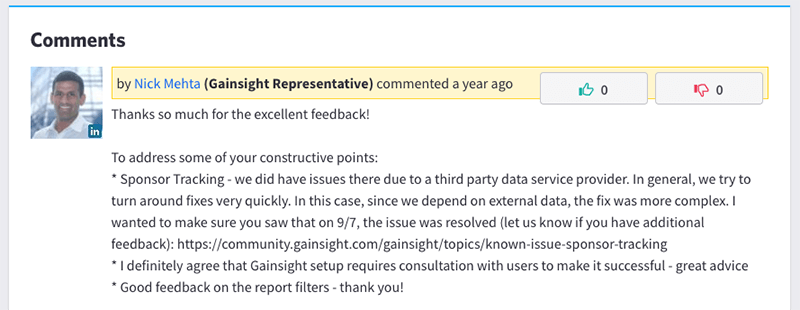
Matt Cain, President & CEO, Couchbase
Couchbase is a NoSQL data platform company. Matt describes the culture at Couchbase as “maniacally focused on customers.” Specifically, a core tenet for him is actively listening to customers. “Getting live feedback directly from a customer carries a lot of weight because it provides you the opportunity to ask for more details,” he said.
Matt recognizes that customer feedback comes in multiple channels, and that it’s critical to listen intently. “With the advent of social media, online surveys, and peer reviews that capture and publish feedback to influence buying decisions, there are several channels for customers to voice their opinions,” he explained. “How well a company listens by acknowledging the feedback will impact the perception of that company by the customer. And it should go without saying that the more positive the perception, the more apt the customer is to recommend that company.”
Like many customer-powered companies, Couchbase is not simply waiting for its online reputation to happen. It’s been proactive in building a high quality public review presence and shaping its narrative. The company has yielded many compelling stories that even the best marketer would find challenging to best. Here’s a typical example: this customer wrote a catchy review title, then followed it up with a detailed 740-word review.

Todd Olson, CEO & Founder, Pendo
Pendo is a pioneer in the emerging product experience category. At Pendo, Todd has made customer success a central pillar: “One of our core values at Pendo is maniacal focus on the customer — and in fact, we use our customers’ success as a measure of our own. If our customers increase product usage, improve feature adoption, retain more users and grow revenues, then we are both providing value and fulfilling our vision as a company.”
Early on at Pendo, Todd started working the support queue himself. “When we received questions or problems, we responded quickly regardless of the time,” he said. “We sometimes adjusted our product plans quickly based on customer issues.”
Todd’s focus on the customer was imprinted at age 14 when working as an intern at MBNA, a credit card bank in his hometown. “Think of yourself as the Customer” was inscribed in the carpets and elevators around every building, and every month the entire company was measured against a set of key indicators including a two-ring pickup time for calls.
Today, Pendo’s customer-centric strategies include using their own product to develop a better experience for their users. They even started a blog focus on using Pendo at Pendo. In addition to documenting best practices and highlighting product features, it provides a unique opportunity to put themselves in their customers’ shoes.
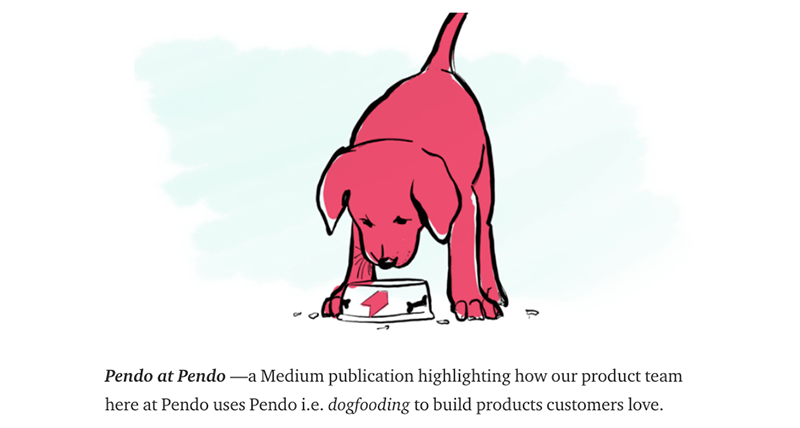
Congratulations to the CEOs recognized, and kudos to all customer-centric CEOs who recognize that market dynamics have changed. They realize buyers are more educated and empowered, and that the most effective way to grow and build a long-term sustainable business is to delight your customers and drive measurable value for them.



